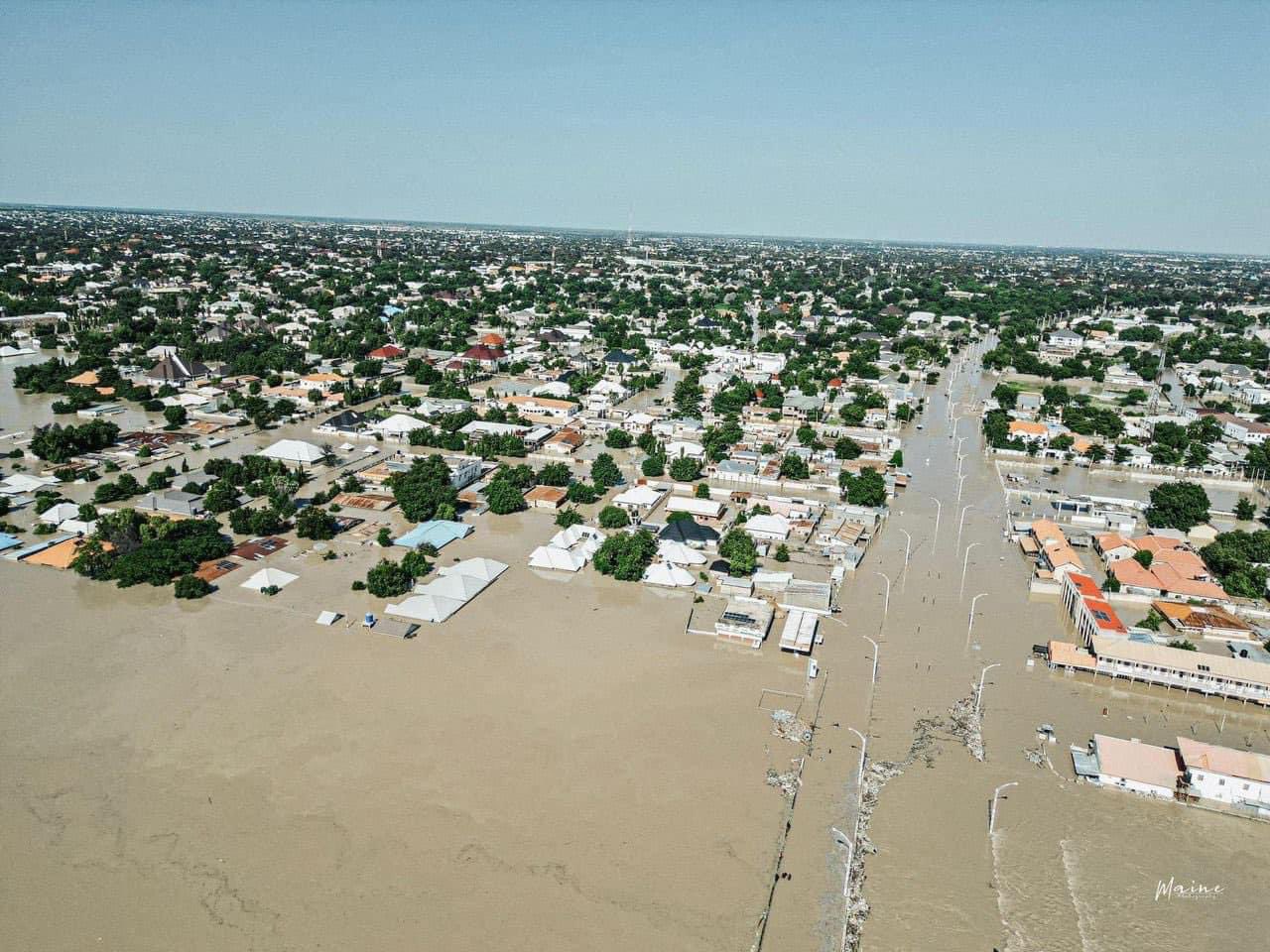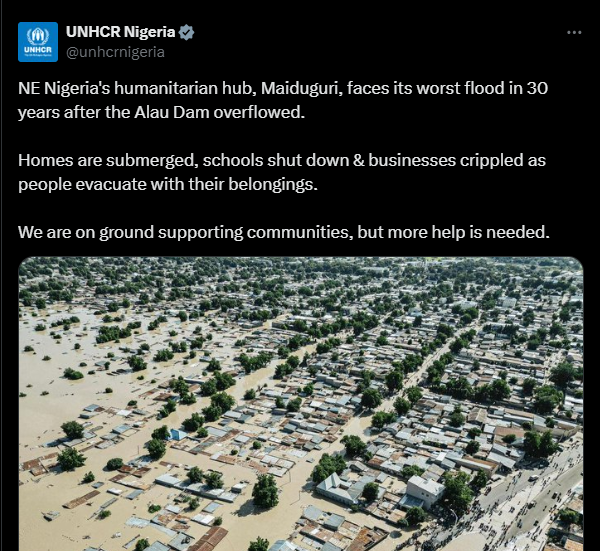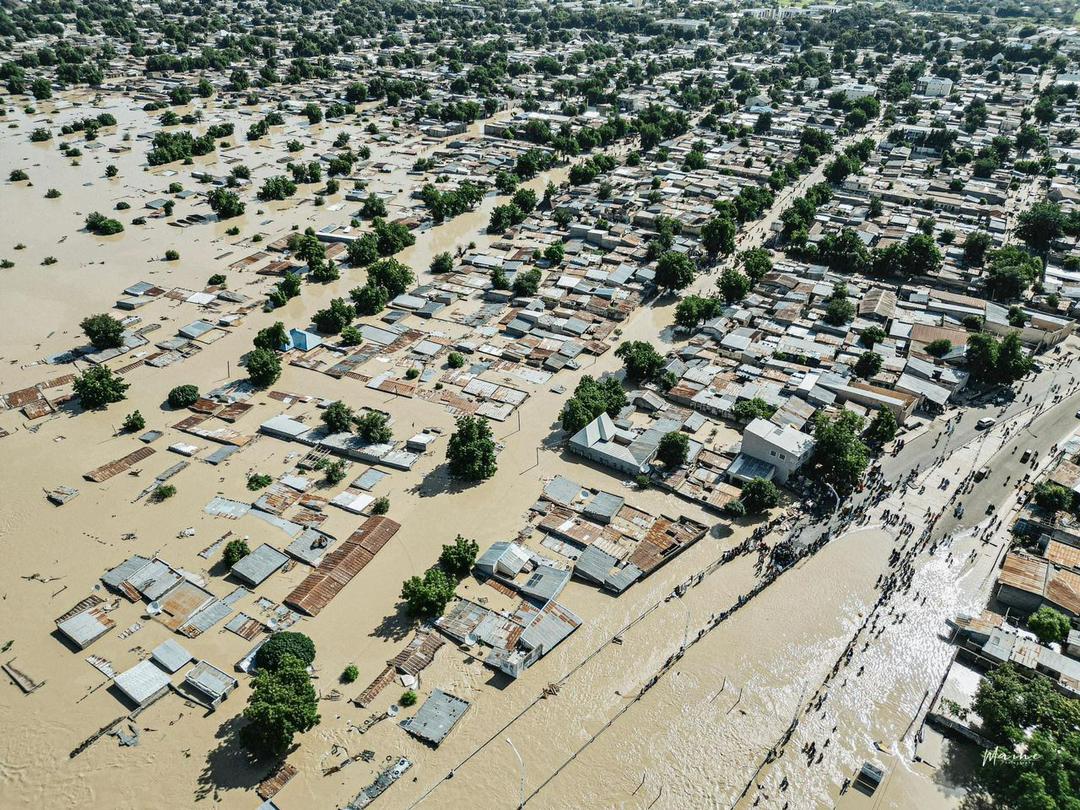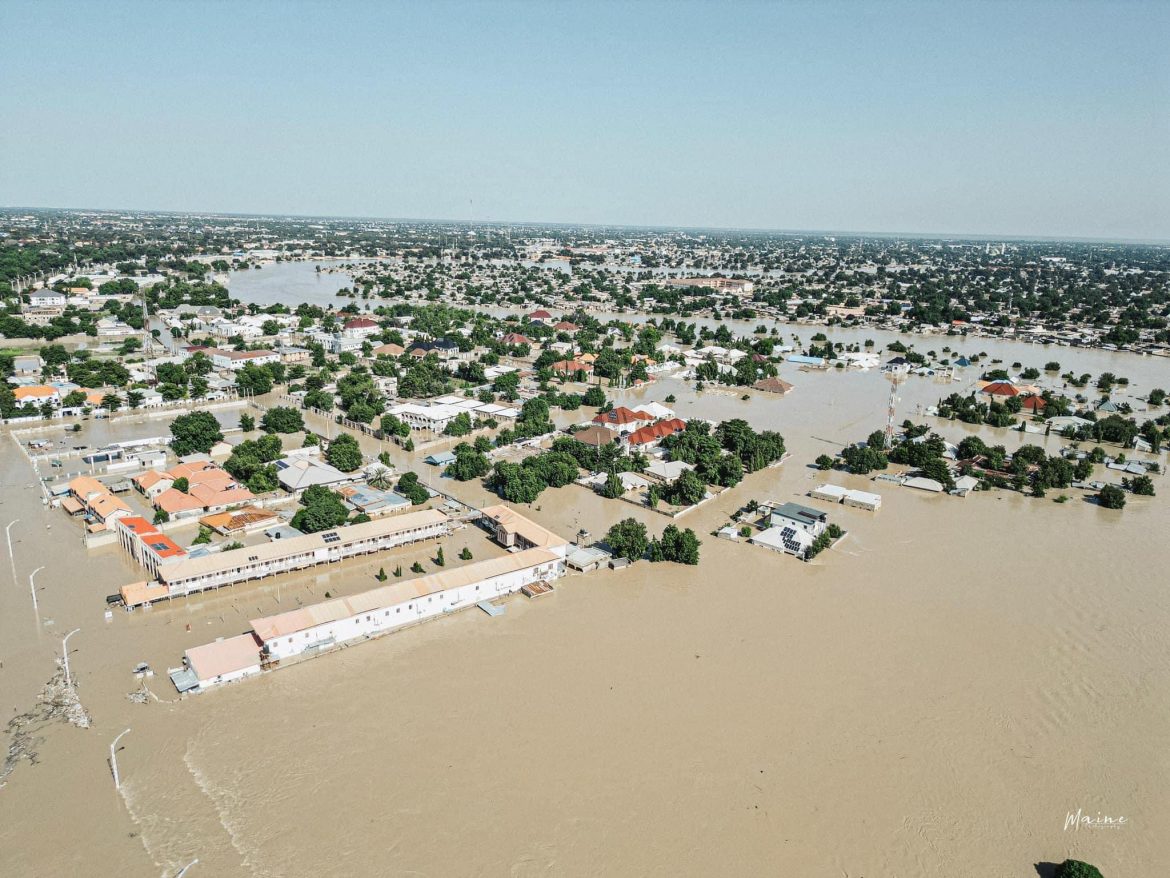On Tuesday, September 10, 2024, social media, particularly X, were awash with pictures and videos showing houses and major roads completely submerged and residents of communities in Maiduguri, the Borno state capital walking on water, scampering for safety and finding refuge on top of flyovers.
The Alau Dam, situated in the Alau community of Konduga local government area of the State, had overflowed its banks, emptying into communities and resulting in massive flooding. Schools have been shut down, & businesses closed. Residents continue to evacuate their belongings to safer havens.
Zagazola Makama, a counter-insurgency expert took to his X to also announce that the flooding had displaced snakes, crocodiles, and other animals” from the Sanda Kyarimi Zoological Park in Maiduguri.

Submerged roads and houses
According to a report by Arise News, the incident, which began a few days ago, reached its peak in the early hours of Tuesday, displacing residents of Fori, Galtimari, Gwange, Bulabulin, and other communities in Jere Local Government Areas and Maiduguri, the state capital.
The latest incidence comes two years after Nigeria experienced what was described as the worst flooding in a decade which affected over 4 million people across 34 of the 36 states of the federation and the Federal Capital Territory. More than 2 million people were displaced and 600 fatalities were reported with 676,000 hectares of farmland damaged. Borno state also had its fair share at the time.
Samuel Jegede, a humanitarian worker in the state wrote on X “Heartbreaking scenes from Maiduguri now, many have been displaced as a result of the flooding that overtook their homes,” Whole communities overwhelmed by flooding caused by the overflow of Alau Dam. Needs are many and the situation is dire,”.
In a post on X, the United Nations High Commissioner for Refugees, (UNHCR)- said that the latest flooding was Maiduguri’s face its worst flood in 30 years. UNHCR functions to aid and protect refugees, forcibly displaced communities, and stateless people, and to assist in their voluntary repatriation, local integration or resettlement to a third country.

Although reports suggest that Authorities in Borno State have already begun evacuating flood victims to a temporary shelter, offering a secure and temporary accommodation for those forced to flee their homes, the latest incidence has sparked conversations about how prepared and committed various state governments and the federal government are to the fight against flooding and other climate change disasters.
Expert blames poor planning
Flood risk expert, Taiwo Ogunwumi said that the latest flooding could have been a result of lack of adequate warning or planning. He said that although dams play a crucial role in water management when water is released without adequate warning or planning, the consequences can be devastating, as seen in the #MaiduguriFloods.

The flooding has displaced animals from the Sanda Kyarimi Zoological Park
“Planning is a subset of preparation, and no matter how much flood control measures you exist within the city e.g. drainage, a sudden release of a large volume of water from the dam can cause a lot of disasters. “Coordinated dam operations are key to flood prevention,”.
Speaking further, he said that the state government can model such water release aforetime/or before the occurrence, but such research or modelling analysis is expensive and I don’t think the Borno state government ever think of that,”.
How much was budgeted and released for flooding?
A check on the state government’s budget performance for the first and second quarters of 2024 to see what exactly was budgeted and released for flood and erosion control truly confirmed a lack of priority of flooding issues by the Borno State government.
For instance, the state government earmarked N1.6 billion (1,653,000,000) for erosion & flood control. Sadly, nothing was released in the first quarter. In the second quarter, only a paltry N20 million, representing 1.2% was released.

Submerged houses
Also, out of N152 million (152,500,000) budgeted for Climate Change Management & Control, nothing was released in both the first and second quarters, according to the state government’s budget performance report.
Refreshments and allowances matter more
A further analysis of the budget performance report showed that the state government chose instead to prioritise items such as refreshments & meals, honorarium & sitting allowance and welfare packages.

State government prioritise refreshment, allowances
So far, these items have received different amounts, running into billions of naira in the first and second quarters. For instance, out of N13 billion (13,733,498,828) budgeted for welfare packages, over N5 billion (5,873,484,364) 42.8% had already been released as of the second quarter.
Out of N992 million (992,037,338) for refreshments and meals, N246 million (246,425,878) 24.8% had already been released as of the second quarter. Also, out of N4.4 billion (4,456,048,000) earmarked for honorarium & sitting allowance, N1.4 billion (1,407,414,295) 31.6% had already been paid as at the second quarter.
Photo credit: Yadomah Bukar Mandara.
